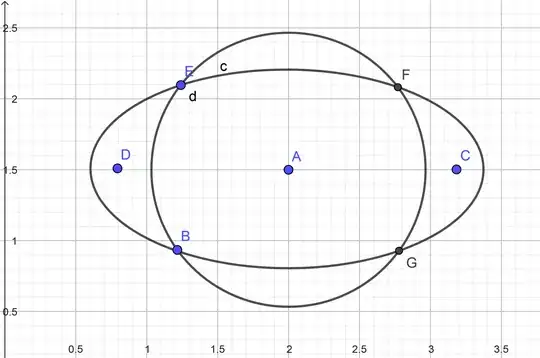I have a circle and an ellipse with the following general equations:
\begin{align*} Circle: (x - m)^2 + (y - n)^2 &= r^2 \\\ Ellipse: \frac{(x - o)^2}{a^2} + \frac{(y - p)^2}{b^2} &= 1 \end{align*}
Where $(x, y)$ are coordinates for the intersection point(s), $(m, n)$ is the center of the circle, $r$ is the circle's radius, $(o, p)$ is the center of the ellipse, $a$ is major radius and $b$ is minor radius. The ellipse has inclination of $0^\circ$.
Obviously I know every value except $(x, y)$ so I can opt for a numerical solution but that's not what I need.
I know that there are 6 cases for the solution depending on the number of intersection points:
- no points
- 1 (sharing a tangent line)
- 2
- 3 (one point sharing a tangent line)
- 4
- infinitely many (if centers and radii are the same)
I've looked at other questions but they are using other equations like that one or are asking for the area of the intersection like that one.
If you cannot provide the equations, at least some pointers on how to solve this would be appreciated.
